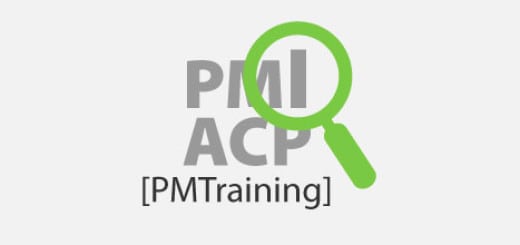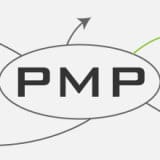Details about the New PMI-ACP Exam 2015 (Effective from 15 July 2015)

PMI-ACP® Exam was first introduced in 31 January, 2012 as a certification for Agile project management practitioners. Over the past few years, the knowledge of Agile has changed a lot. In order to better align to the requirements of the Agile profession, PMI has revised the exam syllabus of the PMI-ACP® Exam recently and the new version of the PMI-ACP® Exam would be effective from 15 July 2015 as a pilot run for 3 months.
Article Highlights
Why the New PMI-ACP® Exam?
PMI has recently performed a Role Delineation Study over the job descriptions and responsibilities of Agile practitioners in order to have an up-to-date view of the general picture of the Agile project management world. Findings from the study are incorporated into the new PMI-ACP® Exam syllabus in order to better align the exam to the real world practices. The update in the PMI-ACP® Exam syllabus will uphold the value of the PMI-ACP® Certification and ensure that holders have the relevant skills to practice Agile in today’s world.
What are the Changes?
PMI has added a new domain of practice named “Agile Principles and Mindset” and the total number of tasks to be tested increased from 56 to 62. The allocation of questions is now based on the domains:
- Domain I. Agile Principles and Mindset 16%
- Domain II. Value-driven Delivery 20%
- Domain III. Stakeholder Engagement 17%
- Domain IV. Team Performance 16%
- Domain V. Adaptive Planning 12%
- Domain VI. Problem Detection and Resolution 10%
- Domain VII. Continuous Improvement (Product, Process, People) 9%
A number of new Tools and Technique / Knowledge and Skills are added, including the following items (though these have already been mentioned in most current PMI-ACP® exam reference books and courses as they are mainstream Agile knowledge these days):
- Managing with agile KPIs, retrospectives, intraspectives
- Developmental mastery models (for example, Tuckman, Dreyfus, Shu Ha Ri)
- Participatory decision models (for example, convergent, shared collaboration)
- Agile hybrid models
- Control limits, the Five WHYs, pre-mortem (rule setting, failure analysis), fishbone diagram analysis
- Minimal viable product (MVP)
All the changes are documented in the new PMI-ACP® Exam Content Outline.
The list of reference books for the PMI-ACP® exam has also been updated with the addition of several new books and removal of some, there are 12 in total for the new PMI-ACP® Exam (1 more than the previous PMI-ACP® exam):
- Agile Estimating and Planning by Mike Cohn
- Agile Project Management: Creating Innovative Products by Jim Highsmith
- Agile Retrospectives: Making Good Teams Great by Esther Derby, Diana Larsen, Ken Schwaber
- Agile Software Development: The Cooperative Game by Alistair Cockburn
- Coaching Agile Teams: A Companion for ScrumMasters, Agile Coaches, and Project Managers in Transition by Lyssa Adkins
- [NEW] Effective Project Management: Traditional, Agile, Extreme by Robert K. Wysocki
- [NEW] Exploring Scrum: The Fundamentals by Dan Rawsthorne and Doug Shimp
- [NEW] Kanban In Action by Marcus Hammarberg, Joakim Sunden
- [NEW] Kanban: Successful Evolutionary Change for your Technology Business by David J. Anderson
- Lean-Agile Software Development: Achieving Enterprise Agility by Alan Shalloway, Guy Beaver, James R. Trott
- The Software Project Manager’s Bridge to Agility by Michele Sliger, Stacia Broderick
- User Stories Applied: For Agile Software Development by Mike Cohn
As one can see, there is a greater emphasis on “Kanban” and “Scrum” with the additional of several reference books on these titles. This trend has also been reflected in the knowledge areas of the exam questions of PMI-ACP® Exam candidates over the past year as many of them saw more questions on Kanban, lean and Scrum.
Any Changes to the PMI-ACP® Eligibility Requirements?
The update in the PMI-ACP® Exam does not affect the PMI-ACP® Exam eligibility requirements. For an Agile practitioner to be eligible for the PMI-ACP® exam, one will need to have:
- a secondary degree (high school diploma, associate’s degree, etc.) or above
- at least 2,000 hours (gained in at least 12 months) of general project experience (Agile or not, waived for PMP holders); and
- at leat 1,500 hours (gained in at least 8 months within the last 3 years) of Agile project experience; and
- 21 contact hours of project management training or education in Agile methodologies
Once qualified, you will need to fill in an online application form on PMI.org for the application of PMI-ACP® Certification. PMI will review your application to determine if you are eligible for taking the exam. Audits on PMI-ACP® application may be performed on a random basis.
Important Dates for the PMI-ACP® Exam
- now – 14 July 2015: PMI-ACP® candidates will take the exam based on the current version of the PMI-ACP® exam syllabus.
- Note: if you have already applied for the PMI-ACP® Exam, you will only be able to schedule the current version of the exam by 14 July 2015, any exams / re-exams taken from 15 July 2015 will be based on the new version even though you have applied before change to the new PMI-ACP® exam.
- 15 July – 14 October 2015: PMI-ACP® candidates take the new version of PMI-ACP® exam. However, they would not be able to get the exam score immediately even if they take the computer based exam as PMI takes time to assess the suitability of the exam questions and adjust the passing rate. Candidates will be able to receive the exam report by 22 October 2015
- from 15 October 2015: PMI-ACP® candidates will receive the exam score immediately for the new PMI-ACP® exam
Most Popular PMI-ACP Certification Articles
- Top 10 Tips to Prepare for the exam (I got all Proficient in my exam)
- How to Get 21 Contact Hours?
- Over 600+ FREE Quality Mock Exam / Practice Questions





 Hi, my name is Edward Chung, PMP, PMI-ACP®, ITIL® Foundation. Like most of us, I am a working professional pursuing career advancements through Certifications. As I am having a full-time job and a family with 3 kids, I need to pursue professional certifications in the most effective way (i.e. with the least amount of time). I share my exam tips here in the hope of helping fellow Certification aspirants!
Hi, my name is Edward Chung, PMP, PMI-ACP®, ITIL® Foundation. Like most of us, I am a working professional pursuing career advancements through Certifications. As I am having a full-time job and a family with 3 kids, I need to pursue professional certifications in the most effective way (i.e. with the least amount of time). I share my exam tips here in the hope of helping fellow Certification aspirants!





